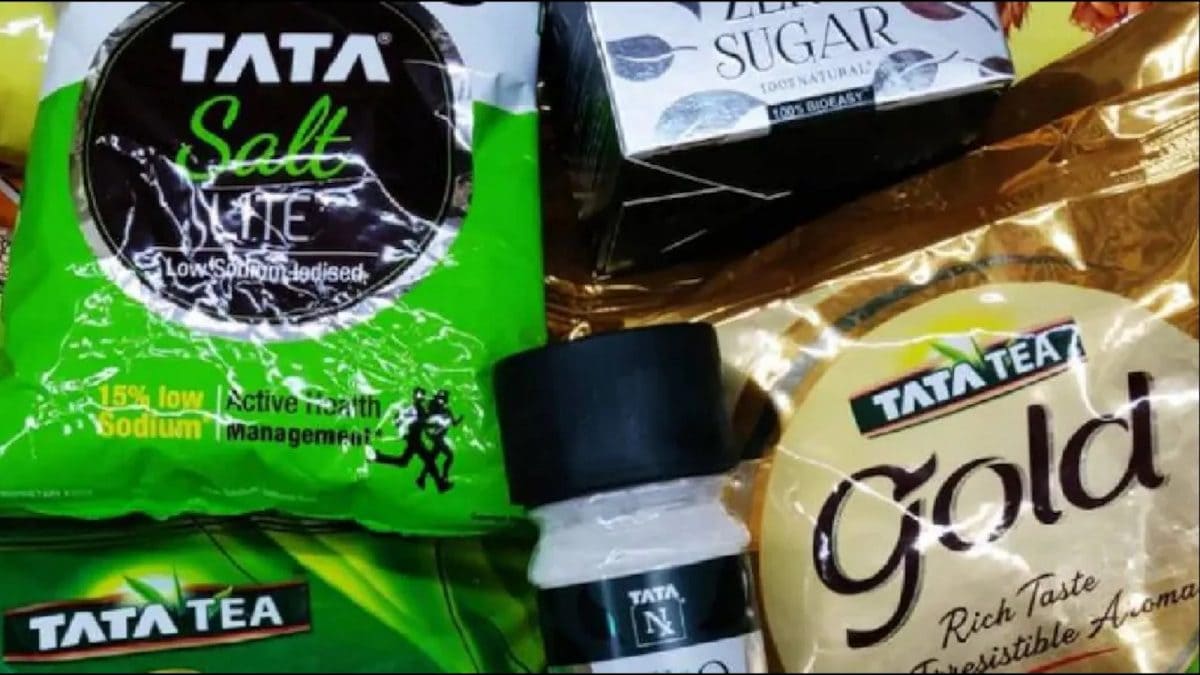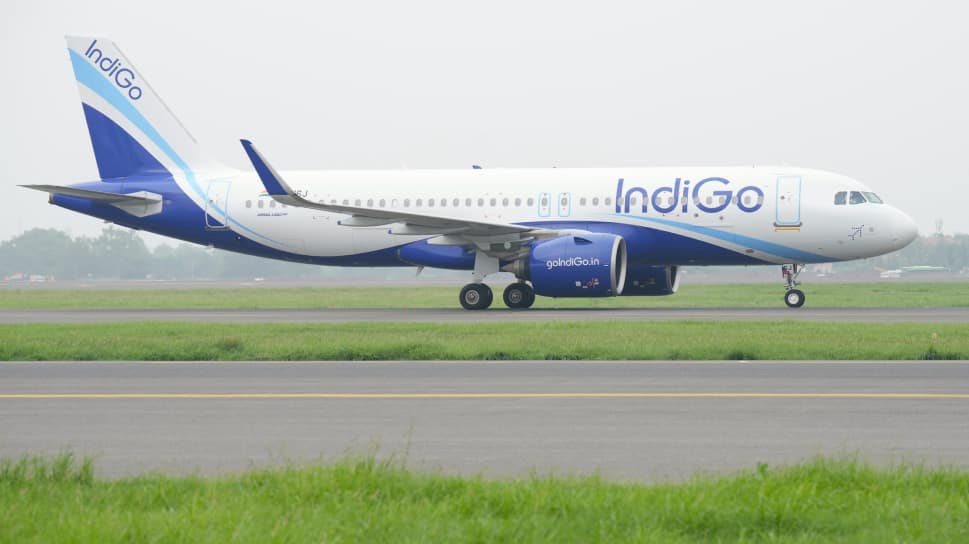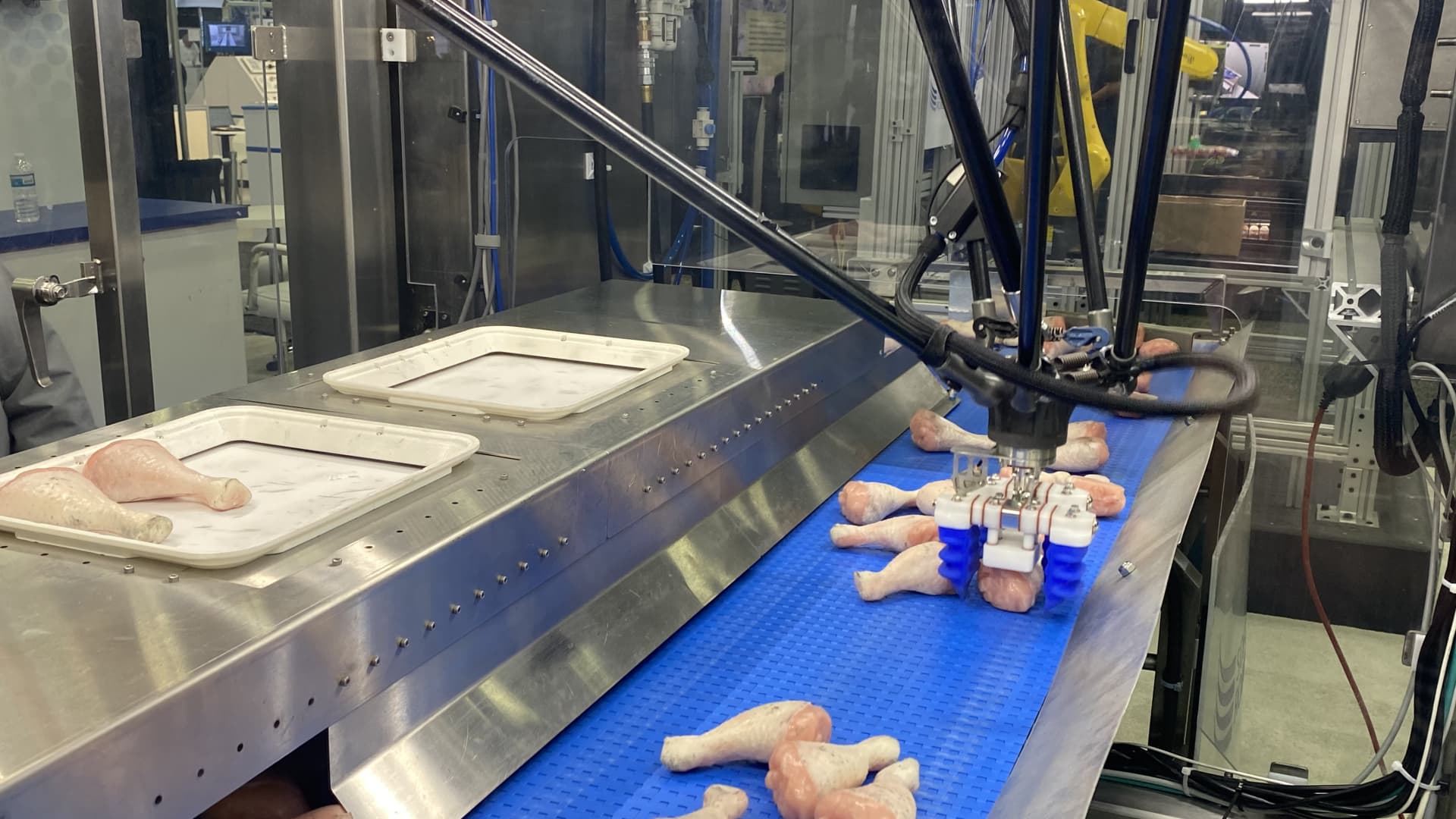A software and robotics machine called mGripAI from Massachusetts-based Soft Robotics sorts artifical pieces of chicken into trays for packaging at an automation conference held by the Association for Advancing Automation in Detroit.
Michael Wayland / CNBC
DETROIT — The automotive and logistics industries are no strangers to robots.
They’re among the most heavily invested businesses in automation in the U.S. economy, using robots to sort packages, transport goods and assist in building vehicles.
But other industries where robotics haven’t yet taken hold may be potential investment opportunities and expansion areas for automation companies in the coming years.
Those emerging areas intrigue Jeff Burnstein, an automation-industry guru and president of the Association for Advancing Automation. His trade group represents more than 1,000 global companies involved in robotics, machine vision, motion control, and motors and related technologies.
Burnstein, who recently received a prestigious award for his more than 40 years in the industry, believes automation and robotics could greatly assist in doing the “dull, dirty, dangerous jobs” that people don’t necessarily want to do.
Jeff Burnstein (right center), president of the Association for Advancing Automation, after receiving a Joseph F. Engelberger Robotics Award for his more than 40-year career in the industry.
Photo courtesy of the Association for Advancing Automation
“If you look at what’s driving a lot of the automation in many industries it’s shortage of people,” he said on the sidelines of an automation convention last week in Detroit.
Labor shortages, led by the manufacturing industry, are the key driver in the growth of automation, he said.
Here are three industries Burnstein predicts are next for automation:
Agriculture
The agriculture industry is already testing or using various automated, if not autonomous, technologies to make operations more efficient and safer. It also serves to cut costs
Tractor maker Deere & Co., for example, offers a suite of automated-assistance features such as turning and guidance for crop row lines. Deere is working on an autonomous tractor that can “see, think, and work on its own, freeing up time for farmers to complete other tasks simultaneously,” according to its website.
Other automated technologies for agriculture include drones that can spray pesticides over crops, remote-controlled tractors, automated harvesting systems, and other data and logistics farming apps.
Deere’s autonomous 8R tractor
Deere
Food processing
Harvesting and sorting chicken parts is exactly the kind of dull, dirty, dangerous jobs automation could assist in doing, Burnstein says.
At the automation convention, at least two companies were showcasing food-sorting robots whose abilities included identifying what types of cuts fit into a tray for packaging.
Beyond efficiency advantages, there are health and safety benefits, too, advocates point out.
“The machine can’t sneeze. It can’t rub its face. It can’t have hair fall into anything. So, it’s really safe. And less hands touching it, the less introduction for any disease,” said Anthony Romeo, a representative of Massachusetts-based companies Cognex Corp. and Soft Robotics, one of the companies working on sorting food and chicken parts, who also attended the convention.
Employees of Tyson Foods
Greg Smith | Corbis SABA | Getty Images
In 2021, Tyson Foods said it would invest over $1.3 billion in new automation capabilities through 2024 to increase yields and reduce both labor costs and associated risks — and ultimately deliver savings for the meat processor.
Tyson CEO Donnie King last month told investors the company is continuing to “invest in automation and digital capabilities with opportunities to improve our yield.”
He said the company has 50 lines for deboning chickens that are fully automated.
Pilgrim’s Pride, one of the world’s largest chicken producers, also has announced substantial investments in automation, including more than $100 million it announced in 2021.
Health care
Automation in health care could be viable in a variety of cases — from transportation of goods and personal medications to someone’s bedside, to cleaning and disinfecting tools.
“You can do that robotically,” Burnstein said. “If you’re having trouble finding people that could be a good solution. There’s all kinds of those things and then drug discovery, of course, and other applications.”
One notable company currently in the space is Aethon, a Pittsburgh-based robotics company that’s made strides in the health-care sector with an autonomous mobile robot called the TUG. The robots are capable of navigating around a hospital independently, according to the company’s website.
The TUG can be programmed to avoid obstacles and even operate elevators, according to the company.
It’s one example of an AMR, or autonomous mobile robot: a type of vehicle that can perform several different delivery tasks, which Burnstein called “hot in automation” at the moment.















































